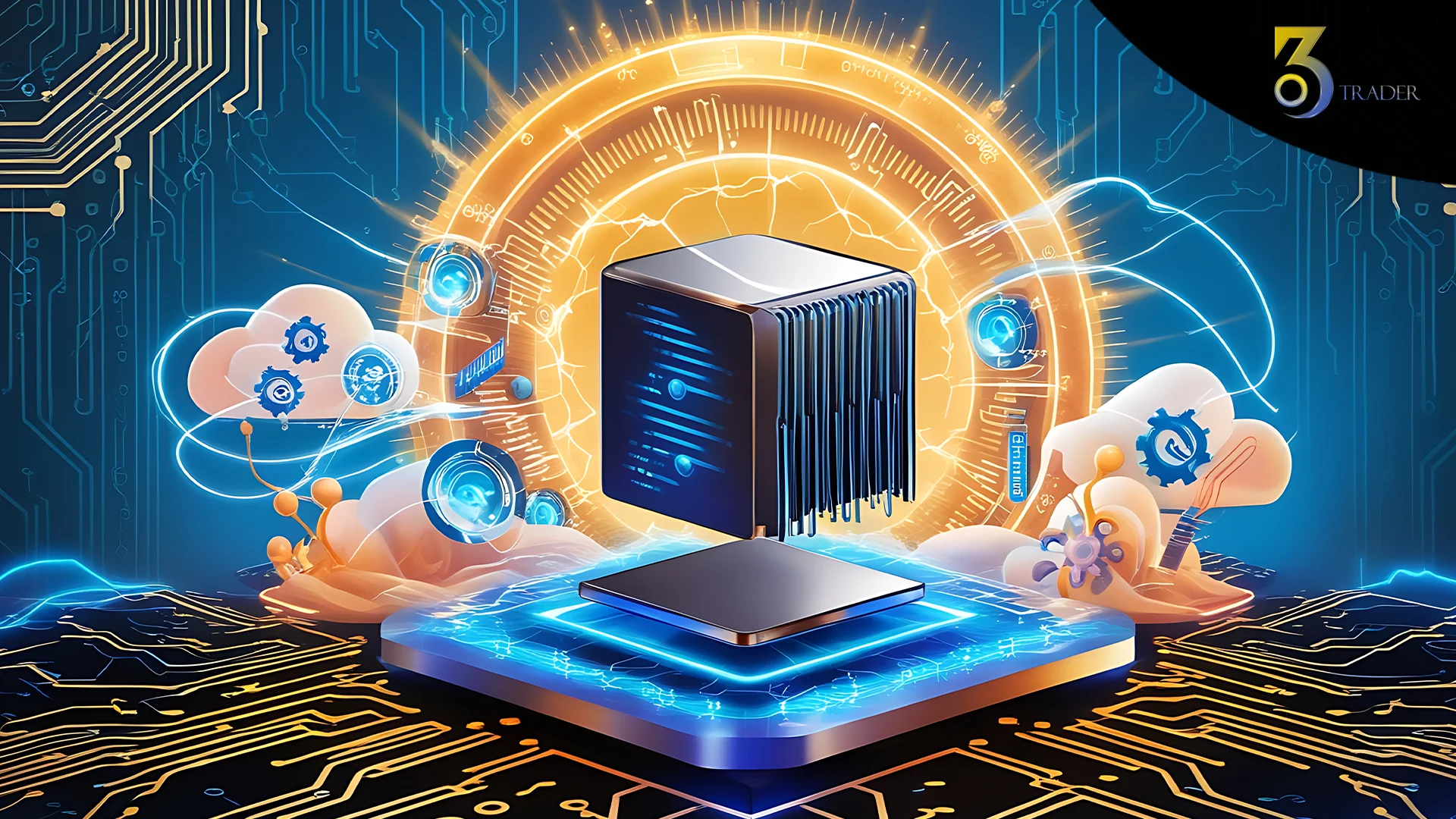Introduction: The Need for Efficient AI Data Storage
Artificial Intelligence (AI) is transforming industries by enabling smarter decision-making, automation, and data-driven insights. However, as AI models grow more sophisticated, the need for vast amounts of data to train these systems has become crucial. Storing, managing, and protecting this data is a growing challenge, with traditional centralized data storage systems facing issues like security breaches, data integrity concerns, and scalability issues.
Enter blockchain technology. By offering a decentralized, immutable ledger, blockchain is poised to address many of these challenges and revolutionize the way AI data is stored, accessed, and shared.
Blockchain and AI: A Perfect Match for Data Storage
Blockchain’s decentralized nature offers numerous advantages for AI data storage, particularly in the following areas:
- Enhanced Security
Security is a top concern for AI data storage. Blockchain’s cryptographic security measures ensure that data is protected from tampering, unauthorized access, or cyberattacks. Every piece of data is encrypted and stored in blocks, making it nearly impossible to alter without detection.
Furthermore, blockchain’s decentralized structure ensures that there is no single point of failure. If one node in the network is compromised, the data remains safe due to the redundancy of copies across the entire network. This makes AI data storage on blockchain platforms significantly more secure than traditional methods.
- Data Integrity and Transparency
Blockchain ensures data integrity by creating an immutable ledger. Once data is recorded on a blockchain, it cannot be altered or deleted. For AI, this is crucial because the accuracy and reliability of data are fundamental to the success of AI models.
Additionally, blockchain provides full transparency, allowing stakeholders to track and verify data provenance. This transparency helps in auditing and monitoring how data is used to train AI models, ensuring compliance with regulations and ethical standards.
- Decentralized Storage Solutions
One of the key benefits of blockchain for AI data storage is the elimination of central authorities and servers. Blockchain allows for decentralized storage, where data is distributed across multiple nodes in the network.
This decentralization not only reduces the risks of data loss but also ensures that data is readily available from various geographical locations, making it easier for AI systems to access the data they need without relying on a central server. Additionally, decentralized storage can be more cost-effective compared to traditional cloud storage solutions.
- Improved Efficiency and Speed
Traditional centralized systems can become bottlenecks when handling vast amounts of data, especially when AI applications demand real-time access. Blockchain technology, combined with protocols like IPFS (InterPlanetary File System), allows for faster, more efficient data retrieval.
Blockchain-based storage systems often use a distributed hash table to index data, which enables AI models to access and retrieve data in a more streamlined manner, reducing delays and improving the efficiency of AI computations.
- Data Sharing and Collaboration
AI development often requires collaboration across organizations and even countries. Blockchain provides a secure and transparent way to share data among multiple parties while ensuring that the ownership and usage rights of data are respected.
Blockchain’s smart contracts feature also enables automated agreements between parties. For example, AI models can access and use data stored on the blockchain based on predefined conditions, ensuring fair compensation for data providers and protecting intellectual property.
Blockchain-Based AI Storage Platforms
Several blockchain-based platforms are already emerging as viable solutions for AI data storage:
- Filecoin: A decentralized storage network that allows users to rent out unused disk space in exchange for tokens. It offers a decentralized way to store large volumes of AI training data.
- Storj: Another decentralized storage platform that uses blockchain to secure and distribute data across the globe. It offers cost-effective and scalable solutions for storing AI data.
- Ocean Protocol: This platform connects AI developers with datasets in a secure, decentralized manner. It allows data owners to maintain control over their data while enabling its use for AI training.
Challenges to Overcome
While blockchain holds immense potential for AI data storage, there are still some challenges to address:
- Scalability: Blockchain networks, especially those based on proof-of-work (PoW), can face scalability issues as the volume of data increases. However, ongoing advancements in blockchain technology, such as the development of layer-2 solutions, promise to alleviate these concerns.
- Data Privacy: Ensuring that sensitive data is kept private while maintaining the transparency of blockchain is a delicate balance. Innovations like zero-knowledge proofs (ZKPs) are helping to address this issue by allowing the validation of data without revealing its contents.
Conclusion
Blockchain is set to transform AI data storage by offering a more secure, transparent, and efficient way to store and manage vast amounts of data. With decentralized storage, enhanced security measures, and improved data integrity, blockchain is becoming an essential tool for AI researchers, developers, and organizations. As the technology continues to evolve, the integration of blockchain and AI will unlock new possibilities for data-driven innovation, creating a more decentralized and collaborative digital future.




